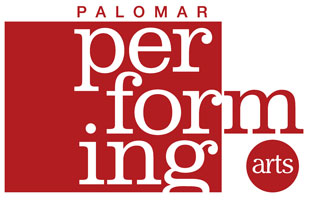Madeline Austin
It Takes All of Us
A Short Essay on Race Written to White People, from A White Woman
Madeline Austin
I did not encounter racism until I was sixteen. I grew up in a predominately white suburban area. I am white, so it was not racism directed towards me; it was directed towards one of my longtime friends. We were at a party that got busted early in the night. Typically, the police where I grew up would tell us to get out of the area and go home. However, this time was different. They came in the house and attempted to get everyone to stay put. My longtime friend, who is black, was trying to leave with another group of kids, who were all white. The police spotted him in the group and pulled him out aggressively. They started using demeaning language when speaking to him and asking him if he had any drugs or weapons on him. They did not pull anybody else aside or ask anybody else those same questions. Later, I would learn that what the police had done was called racial profiling. Because he was the only black kid at the party, they targeted him. They were treating him like someone that was already guilty of wrongdoing. Like me, he was sixteen too. Just a child.
As white people, we often do not even know this happens. We do not experience racism. We do not experience discrimination. When we first encounter it and realize it, we are teenagers or adults. However just because we do not see it happening, does not mean that it is not happening or that it is not real. Many black Americans across the country share my friends experience, whether it happened when they were sixteen, thirty-five, or nine years old. These interactions with the police result in the death of black Americans at a rate three times higher than white Americans. This statistic is horrifying.
When we talk about racism in policing, it is not just a ‘bad cop’ problem. It is an institutional racism problem; this is the same for other institutions like law enforcement across the country. The United States was founded on racism: here is an extremely brief history that most of us were taught in school. White men wrote the Constitution and these white men owned slaves. When the South lost the civil war and slavery was outlawed, Jim Crow laws were put in place. The Civil Rights Act of 1964 ended Jim Crow and made segregation illegal. However, racism did not end with the signing of the civil rights act. The institutions of this country that were created by racist white men were not reformed, they did not change on the inside at all, and they still have not changed. Most white Americans have turned a blind eye to this for decades, and that is our fault.
Typically, when I say that, I get an immediate defensive reaction from people: “It wasn’t me that did that, why is it my fault?” or “What am I supposed to do about it?”. As white people we must acknowledge what we have ignored for so long. The systems that benefit us and that oppress others. We are given privilege because of the color of our skin. It is our job to acknowledge this privilege we have, and to try to dismantle and reform the institutions that I mentioned earlier: the ones that are built to give us privilege and put minorities at a disadvantage. Not doing so is taking advantage of this system, and that makes you racist and it makes you the oppressor. We cannot stand by and continue to feed into these racist systems while minorities in this country fight against them.
We also need to acknowledge the racism we have within ourselves and unlearn it. It is a hard pill to swallow, but I am sure that every white person reading this has used a microaggression before. Clutching your purse when you walk by a black man, locking your car doors when a Latino man walks by, or saying “You are so well spoken” to a black woman. I know many of us were taught racism as children, and it is our responsibility to unlearn it as teenagers and adults. Again, if you refuse to acknowledge these things and unlearn them, you are racist and you are the oppressor.
There is so much more to say, but I want to keep this short. As white people, we do not get to tell minorities what they go through when it comes to racism and discrimination. We need to listen to their experiences and learn. Take accountability, educate yourselves on these topics; I am still learning and unlearning. If we stay ignorant, we are complicit. It takes all of us.
